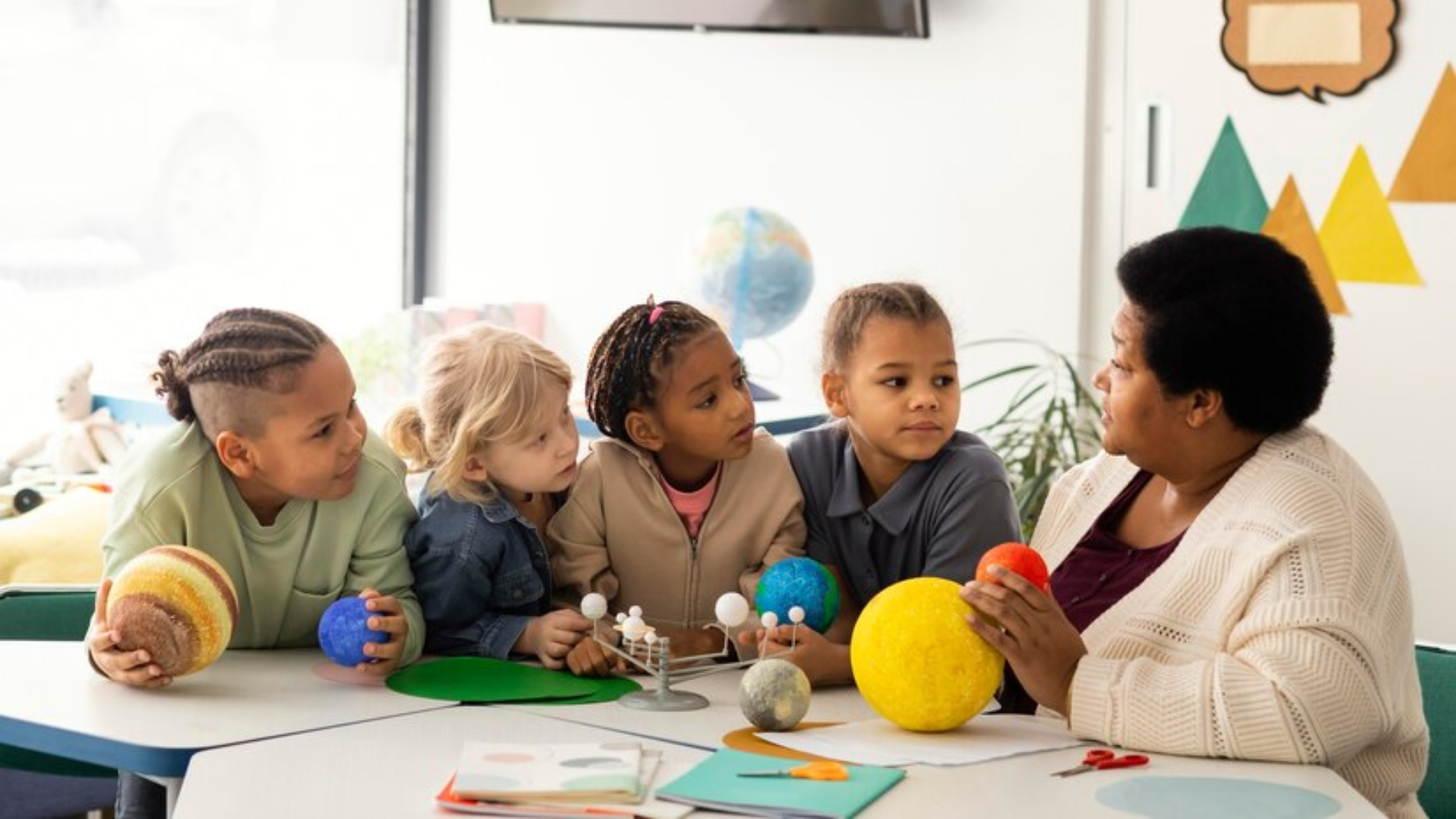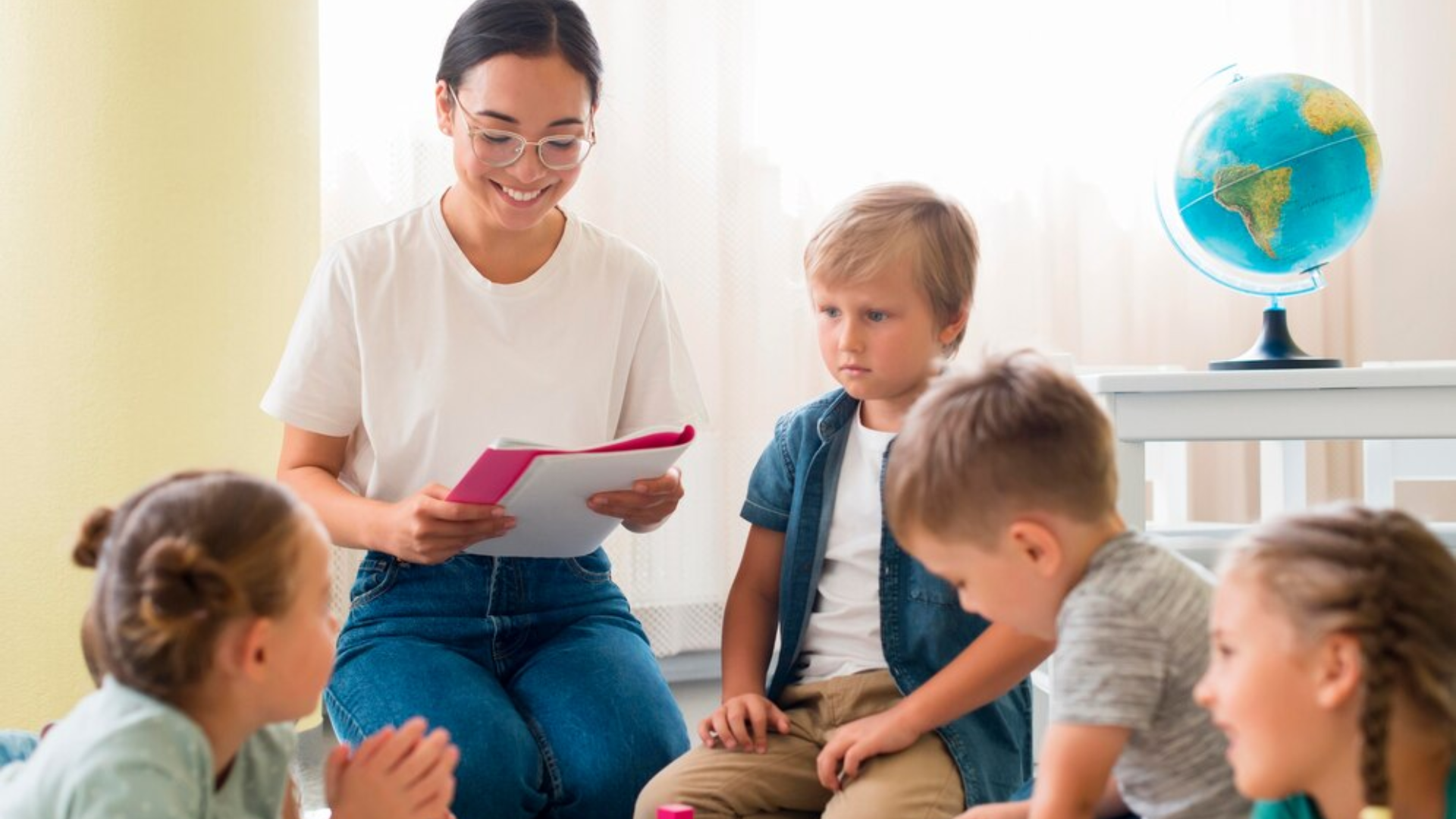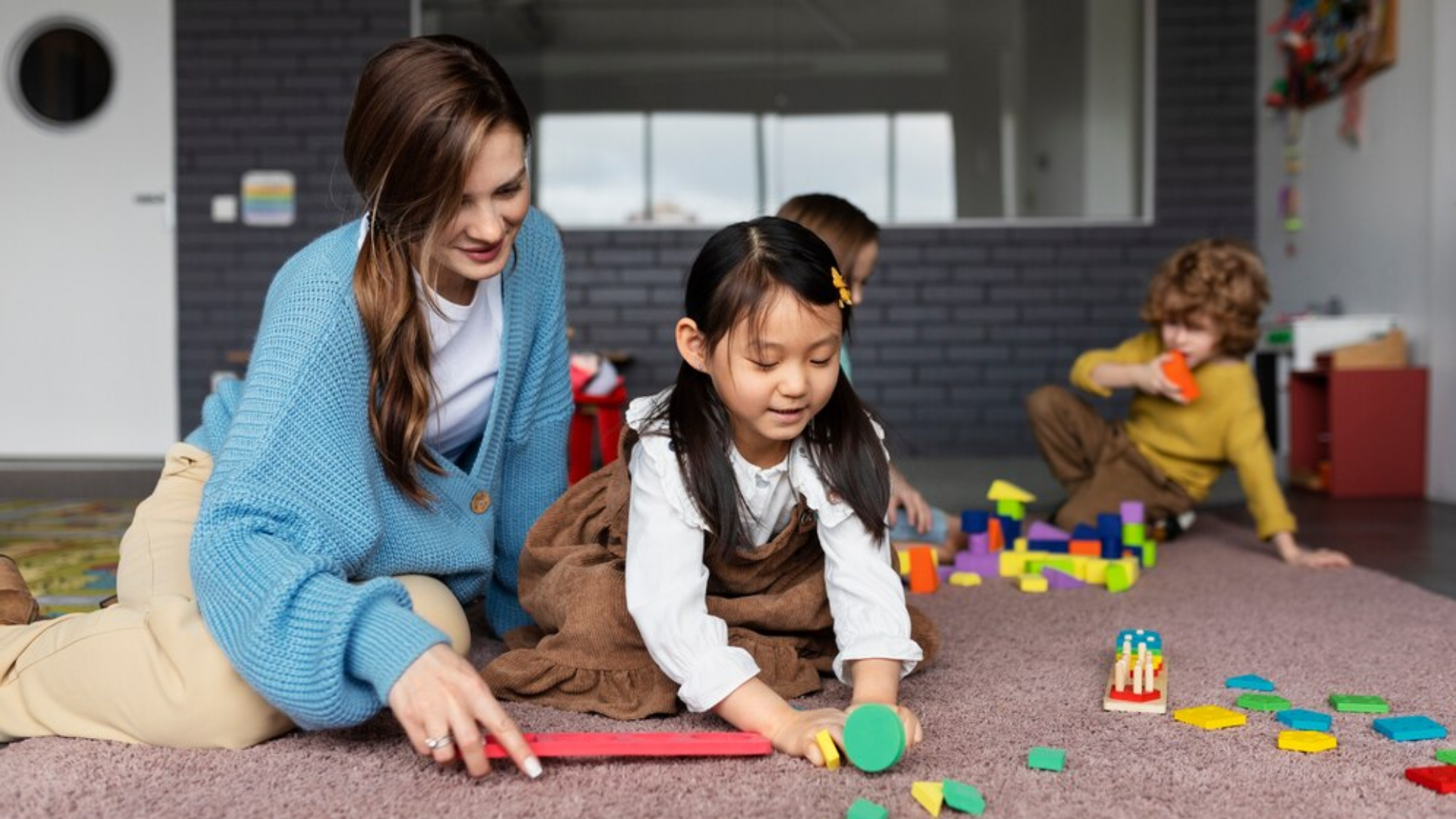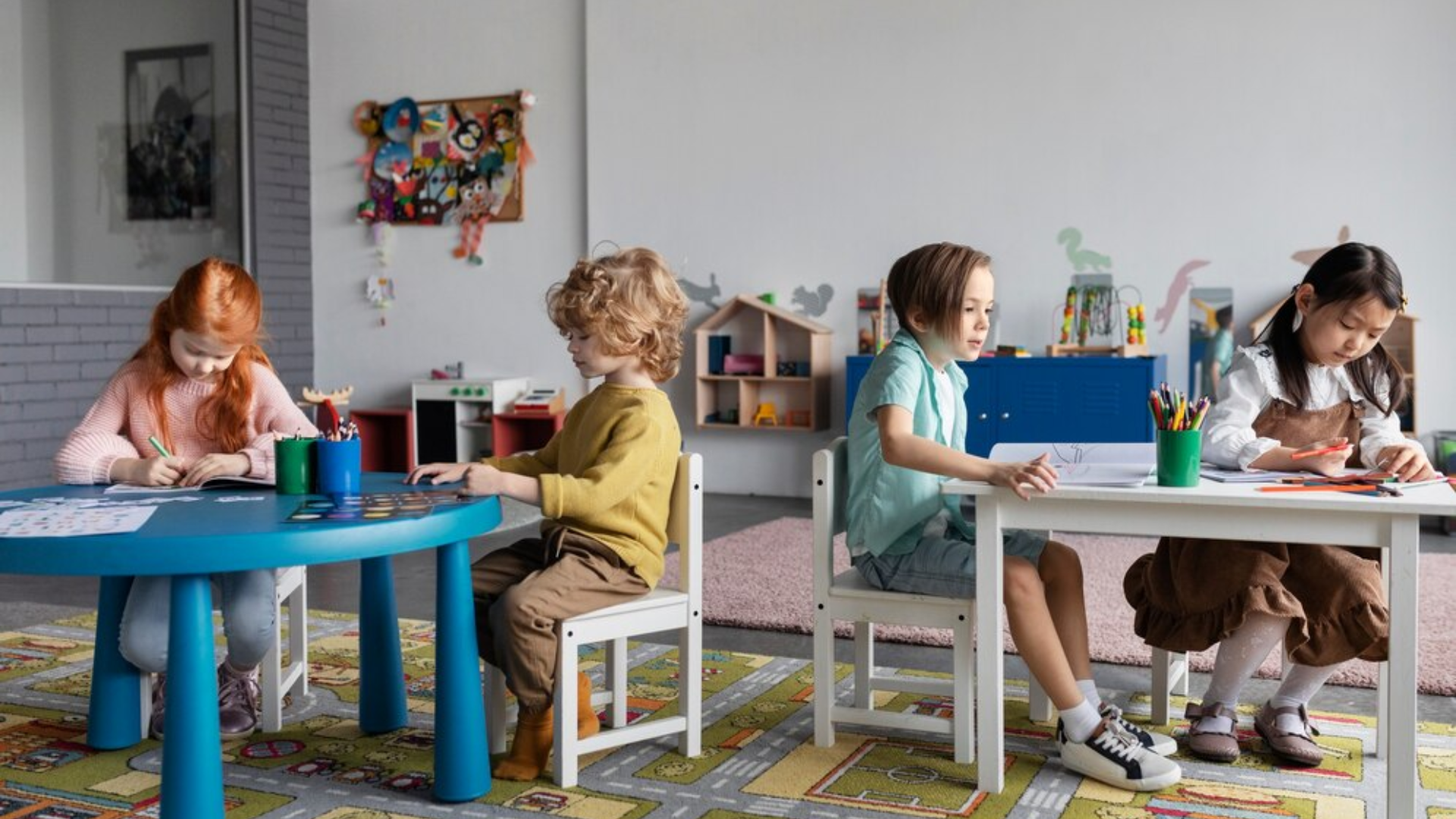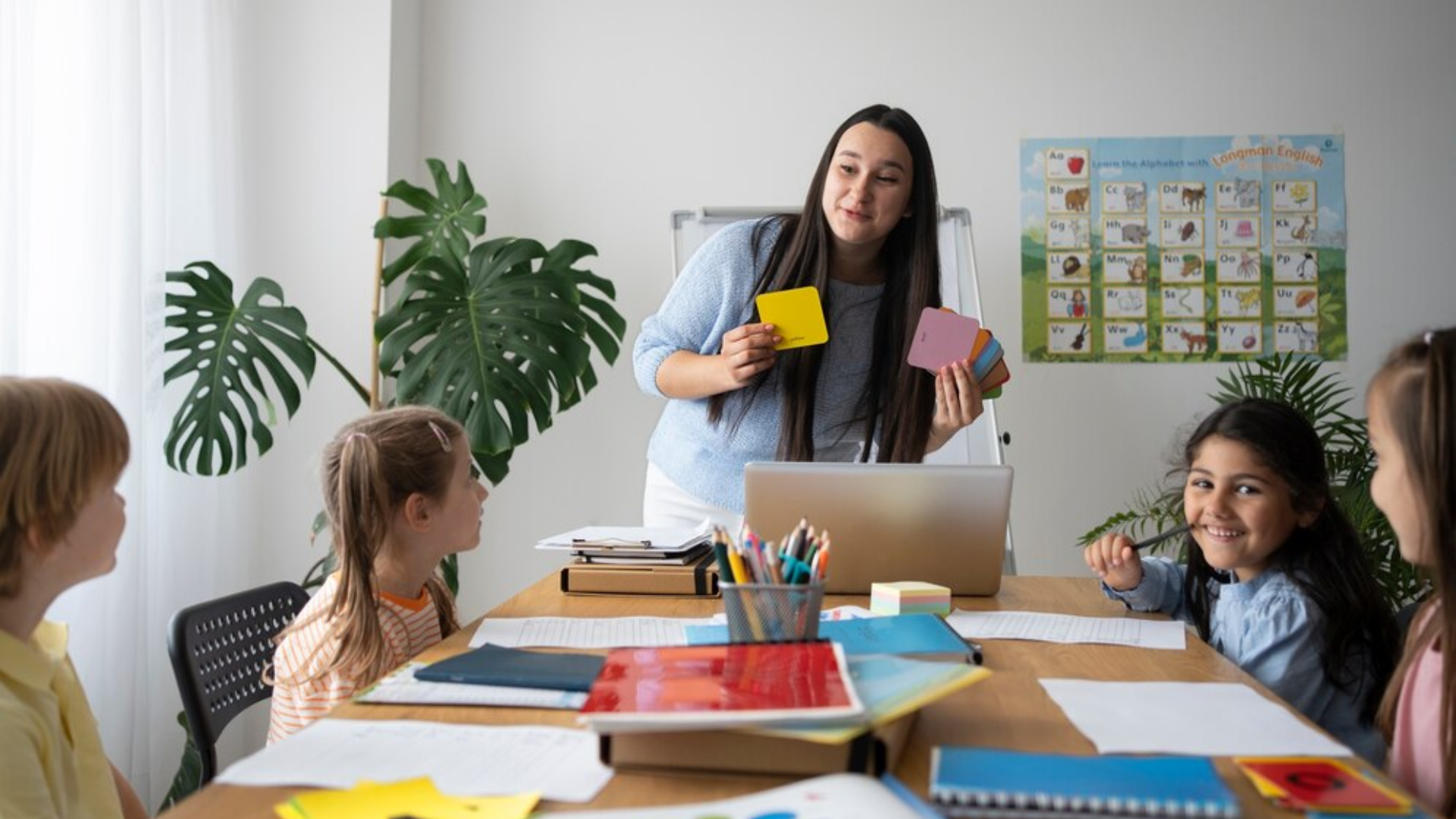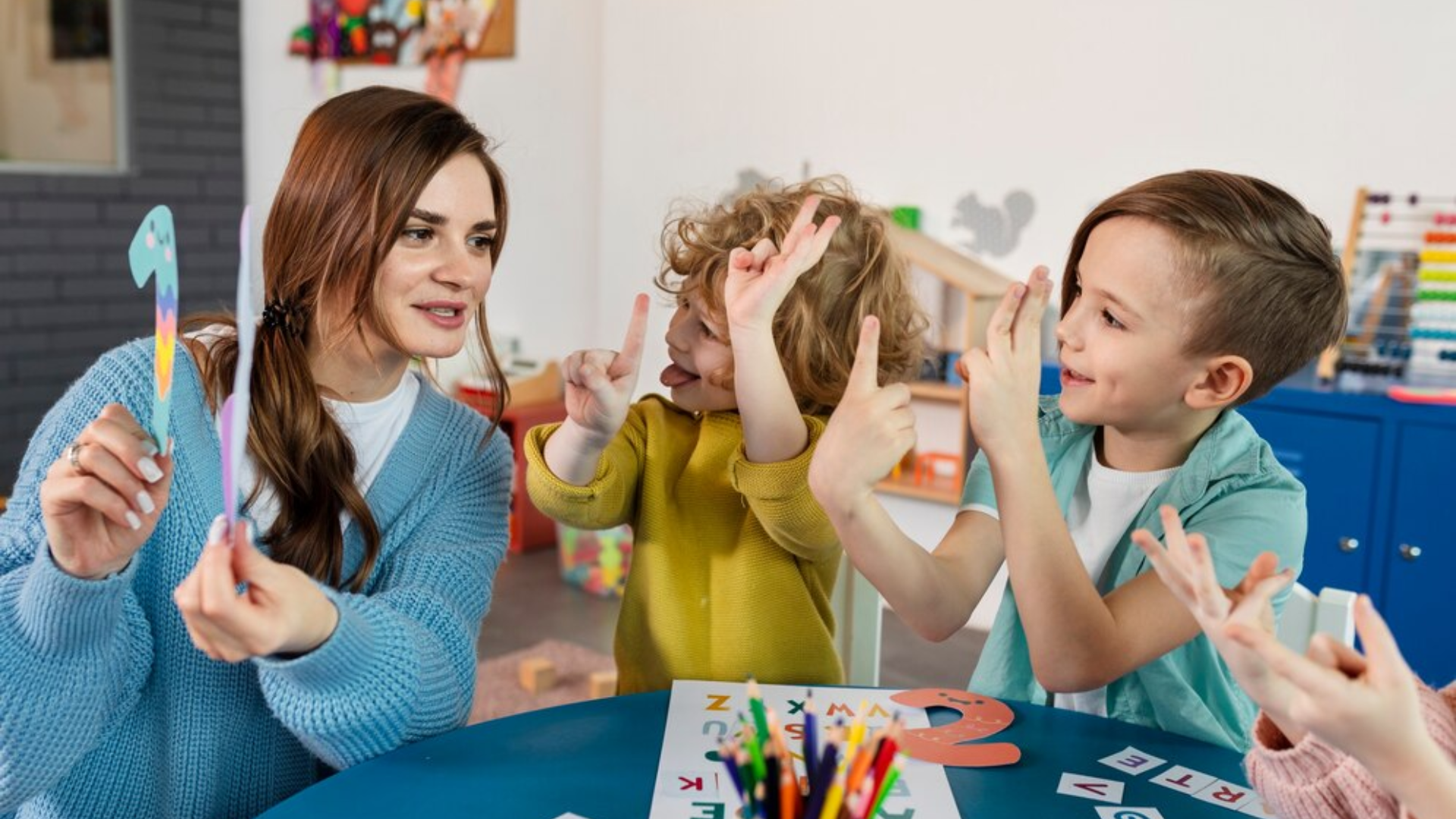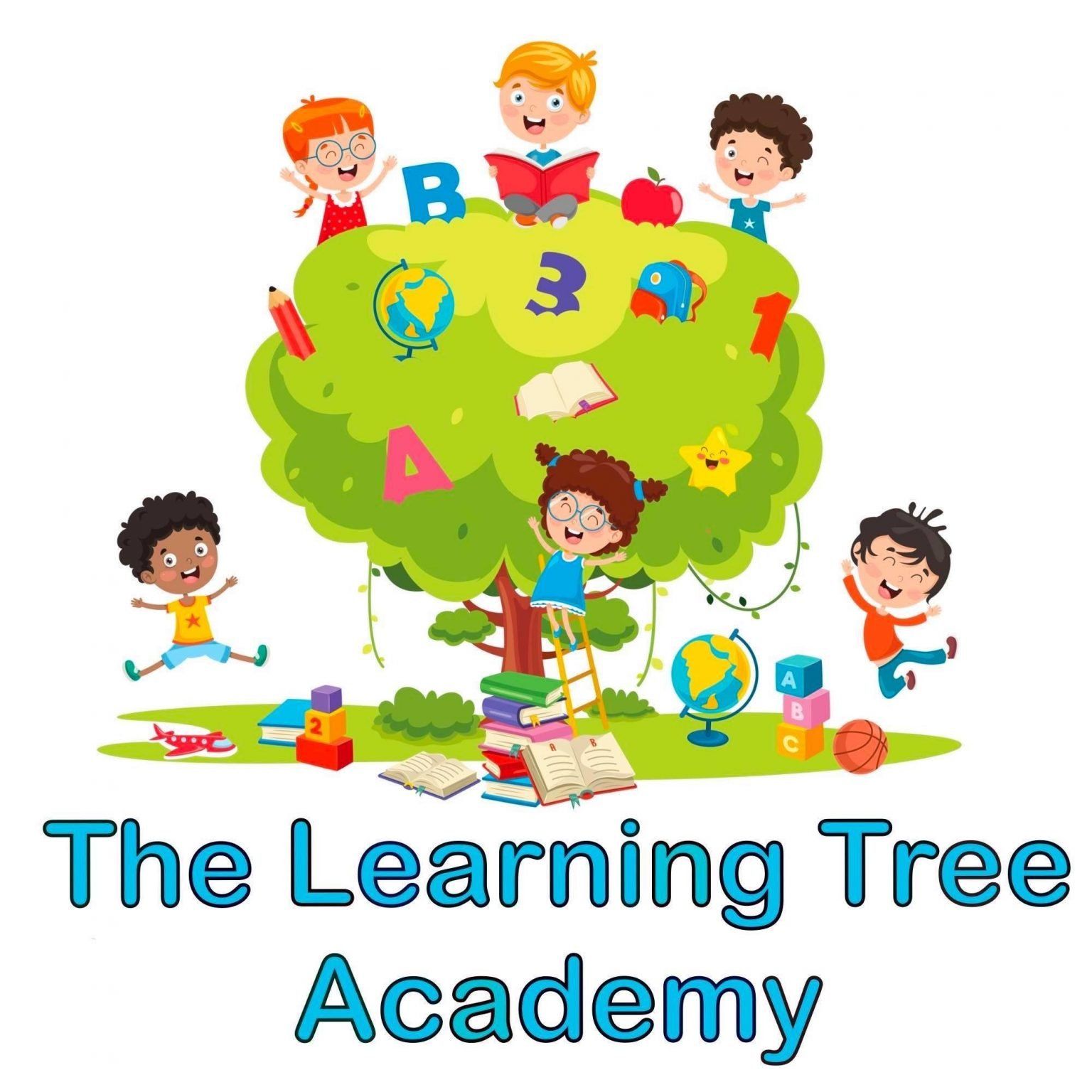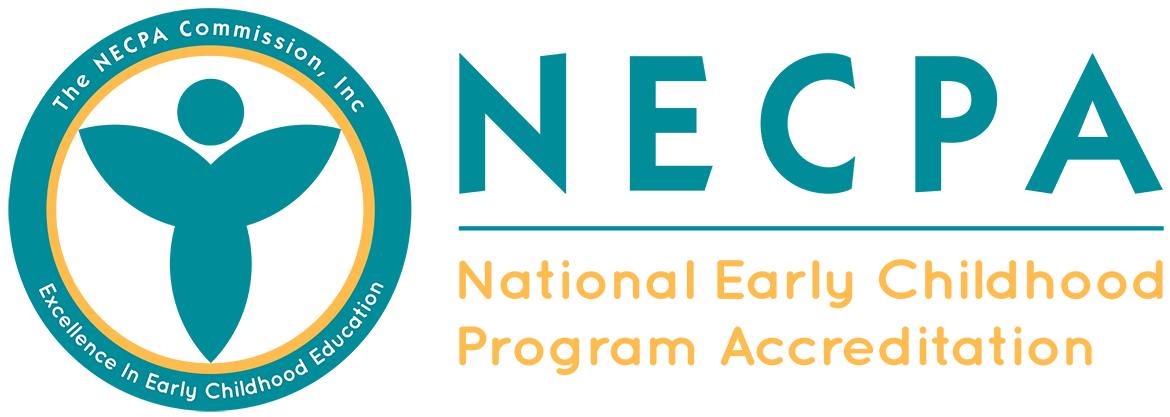What Makes Our Curriculum Stand Out? A Closer Look at Our Teaching Philosophy

At The Learning Tree of Palm Bay, we don’t just educate children—we nurture their curiosity, inspire their creativity, and empower them to develop into confident and lifelong learners. Our carefully designed curriculum goes beyond traditional teaching methods to create an environment where every child is valued, supported, and encouraged to grow to their full potential. We believe that a child’s educational journey should be rooted in love, exploration, and discovery, and it is this foundational philosophy that makes our curriculum stand out.
In this blog post, we’ll dive deeper into what makes our curriculum unique, exploring the principles and teaching philosophies that guide our approach to early childhood education. From a child-centered methodology to a focus on social-emotional learning, here’s how we craft an experience that fosters not only academic success but also the joy of learning.
Child-Centered Approach: Every Learner is Unique
One of the core tenets of our teaching philosophy is the understanding that every child is an individual with their own unique learning style, strengths, and needs. That’s why we embrace a child-centered approach to education, where the child is at the heart of the learning process. This philosophy allows us to create a dynamic, supportive, and personalized learning experience that adapts to each child's developmental stage.
Our teachers take the time to build meaningful relationships with each student, observing their interests, strengths, and areas for growth. This individualized attention allows our educators to develop targeted lesson plans that resonate with each child and challenge them to reach new milestones. In our classrooms, no two days are alike. Some children may thrive in a quiet, independent environment where they can reflect and work at their own pace, while others may prefer more collaborative, hands-on experiences. Our flexible approach allows us to accommodate these varying preferences, creating a space where every child feels comfortable and confident in their learning.
We believe that this focus on the individual child fosters a deep sense of self-worth and a lifelong love for learning. Children who feel respected and supported in their unique learning journeys are more likely to engage actively in their education and embrace challenges with enthusiasm.
Play-Based Learning: Learning Through Exploration and Discovery
When we say that children learn best through play, we mean it. Play is not just a break from learning—it is an essential aspect of it. At The Learning Tree of Palm Bay, we understand that play-based learning is one of the most effective ways for children to explore new concepts, develop social skills, and build a love of learning that lasts. Play fosters cognitive, physical, social, and emotional development, all while encouraging children to engage with their environment and peers in meaningful ways.
Whether children are building towers with blocks, conducting simple science experiments, or participating in role-playing activities, play offers countless opportunities for learning. Through these activities, children develop essential problem-solving skills, expand their creativity, and refine their fine and gross motor skills. The act of playing encourages children to experiment, make mistakes, and learn from their experiences, which is an invaluable lesson in resilience and perseverance.
Our classrooms are carefully designed to foster these kinds of interactions. We provide a variety of materials and resources that spark imagination, encourage curiosity, and challenge children to think critically about the world around them. Play is incorporated into every aspect of our curriculum, ensuring that learning is always fun, interactive, and meaningful.
A Holistic Approach to Child Development: Building the Whole Child
At The Learning Tree, we believe that education should support the development of the whole child—intellectually, emotionally, socially, and physically. We take a holistic approach to early childhood education, ensuring that our students receive a balanced experience that promotes growth in all areas.
Cognitive development is a priority, and our curriculum includes engaging activities that help children build important academic skills such as literacy, numeracy, and critical thinking. But we also understand that a well-rounded education includes more than just academics. Social-emotional learning (SEL) is woven throughout our program, helping children develop key interpersonal skills like empathy, communication, and self-regulation.
Physical development is another crucial aspect of early childhood education. Our students have daily opportunities for active play, whether it’s through outdoor activities, structured movement exercises, or group games. Physical activity not only helps children build coordination and motor skills but also supports their cognitive development by improving focus and concentration. Furthermore, physical health is vital to emotional well-being, and we encourage healthy habits such as proper nutrition, rest, and exercise to ensure children are physically prepared to learn and grow.
We also place significant emphasis on emotional intelligence, recognizing that children’s ability to understand and manage their emotions directly impacts their ability to succeed academically and socially. Our teachers create an emotionally supportive environment where children feel comfortable expressing their thoughts and feelings and where they can build meaningful relationships with peers and adults alike.
STEM Education: Preparing Children for the Future
In an increasingly technology-driven world, it’s essential for children to develop skills in science, technology, engineering, and mathematics (STEM). At The Learning Tree of Palm Bay, we integrate STEM education into our curriculum from the very beginning. Our approach to STEM is hands-on and inquiry-based, encouraging children to explore scientific concepts, ask questions, and engage in problem-solving activities that foster critical thinking and creativity.
From conducting simple experiments to designing engineering projects using everyday materials, our students are exposed to STEM concepts in ways that are age-appropriate and engaging. These activities spark curiosity and allow children to experiment with cause and effect, observation, and analysis, helping them build foundational knowledge in science, math, and engineering.
By introducing STEM in a playful and accessible way, we give children the tools to approach challenges with confidence, think critically about solutions, and develop an early love of science and technology. We also cultivate skills like perseverance and resilience, as children learn that making mistakes and trying again is a natural part of the learning process.
Fostering Creativity and Imagination: Encouraging Innovative Thinking
At The Learning Tree, we understand that creativity is one of the most important skills children can develop. Creativity helps children think outside the box, approach problems from new angles, and find innovative solutions. It also allows them to express their emotions, thoughts, and ideas in unique and meaningful ways.
Our curriculum places a strong emphasis on fostering creativity through various artistic mediums, including visual arts, music, drama, and dance. Whether children are creating sculptures out of clay, composing songs on instruments, or performing in front of their peers, they are encouraged to explore their creative potential in a supportive environment.
But creativity isn’t limited to the arts. It permeates every aspect of our curriculum. Our teachers encourage children to use their creativity in problem-solving tasks, STEM projects, and even in their social interactions. By fostering an environment where creative thinking is valued, we help children develop the skills to become innovative thinkers who can navigate the complexities of the world around them.
Social-Emotional Learning: Building Emotional Intelligence for Success
Social-emotional learning (SEL) is a foundational component of our curriculum. We believe that a child’s ability to understand and manage their emotions, build positive relationships with others, and make responsible decisions is just as important as academic achievement. SEL equips children with the tools they need to navigate life’s challenges and succeed in school and beyond.
Our approach to SEL is integrated into every part of our day, from structured lessons to informal interactions with peers and teachers. Through activities like group discussions, role-playing, and reflective exercises, children develop important skills like empathy, self-regulation, and conflict resolution. We also teach children how to set goals, stay motivated, and bounce back from setbacks—key skills for lifelong success.
By nurturing emotional intelligence, we ensure that children not only excel academically but also develop the emotional resilience and interpersonal skills they need to thrive in all areas of their lives.
Parent and Community Involvement: A Collaborative Approach
At The Learning Tree, we believe that a strong partnership between parents, teachers, and the community is essential for a child’s success. We encourage parents to take an active role in their child’s learning experience, whether it’s through volunteering in the classroom, participating in parent-teacher conferences, or attending special events.
We also recognize the importance of community connections. By engaging with local organizations, inviting guest speakers, and planning field trips, we expose children to the broader world and help them understand their role in the community. These experiences help children develop a sense of social responsibility, empathy, and an understanding of diverse perspectives.
Together, with the support of families and the community, we create a collaborative environment that enhances the educational experience for every child, ensuring they have the tools and support needed to succeed.
To learn more about how we nurture a love for learning in every child through our unique curriculum, read
How The Learning Tree Nurtures a Love for Learning in Every Child and discover how our holistic approach fosters curiosity, creativity, and confidence in young learners.
Conclusion: A Curriculum Designed for Lifelong Learning
The Learning Tree of Palm Bay’s curriculum stands out because it is not just about academic learning, it is about nurturing the whole child. Our curriculum is designed to foster a love of learning that will stay with children long after they leave our care. Through a balanced approach that emphasizes academic rigor, social-emotional development, creativity, and physical health, we create an environment where children thrive.
Our goal is not just to prepare children for the next grade level but to help them develop the skills they need to succeed in life. By focusing on individuality, curiosity, creativity, and resilience, we empower children to become confident learners who are excited about the world around them and ready to embrace its challenges.
At The Learning Tree, we are dedicated to nurturing a generation of lifelong learners who will continue to grow, explore, and achieve in all that they do.
